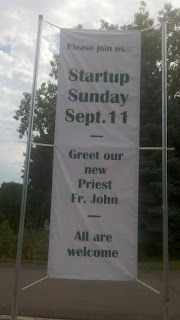 Psalms 5, 6, * 10, 11; Amos 3:1-11; 2 Peter 1:12-21; Matthew 21:12-22
Psalms 5, 6, * 10, 11; Amos 3:1-11; 2 Peter 1:12-21; Matthew 21:12-22A full and rich Gospel selection from Matthew today. Jesus "cleanses" the temple courtyard. He heals the blind and the lame. Children cry out praises to him, which draws the attention and ire of the temple officials. Jesus responds to that ire by saying perhaps they need to listen to the truth coming from infants. And we have the story of the fig tree made to wither for its lack of fruit and the value Jesus places on faith. A lot to take in today.
One of the things that attracts attention is Jesus and the temple clearing: the money-changers and those who sold doves chased from the temple. These people traded in currency, allowing people to more easily fulfill their "obligations" around the temple tax and worship. Making things easier undermines the point of worship and the point of sacrificing something to God. The "first fruits" tagged for honor to God had been cheapened down to meaning nothing, and is behind Jesus' outrage at what is transpiring in the central house of worship for the people of Israel. This stark and strong reaction of Jesus is meant to highlight for us the importance of not looking for short cuts in our faith, in our understanding....to not settle for easy answers to the complexities and mysteries of our faith.
Struggling with, thinking about, studying, having conversations about, praying with others about God's ready involvement in our lives is part of what Jesus' cleansing of the temple courtyard should direct our attention. Short cuts and easy answers are not the way to a more full and rich faith-life.
jfd+
Copyright 2011, The Rev. John F. Dwyer. All Rights Reserved.












